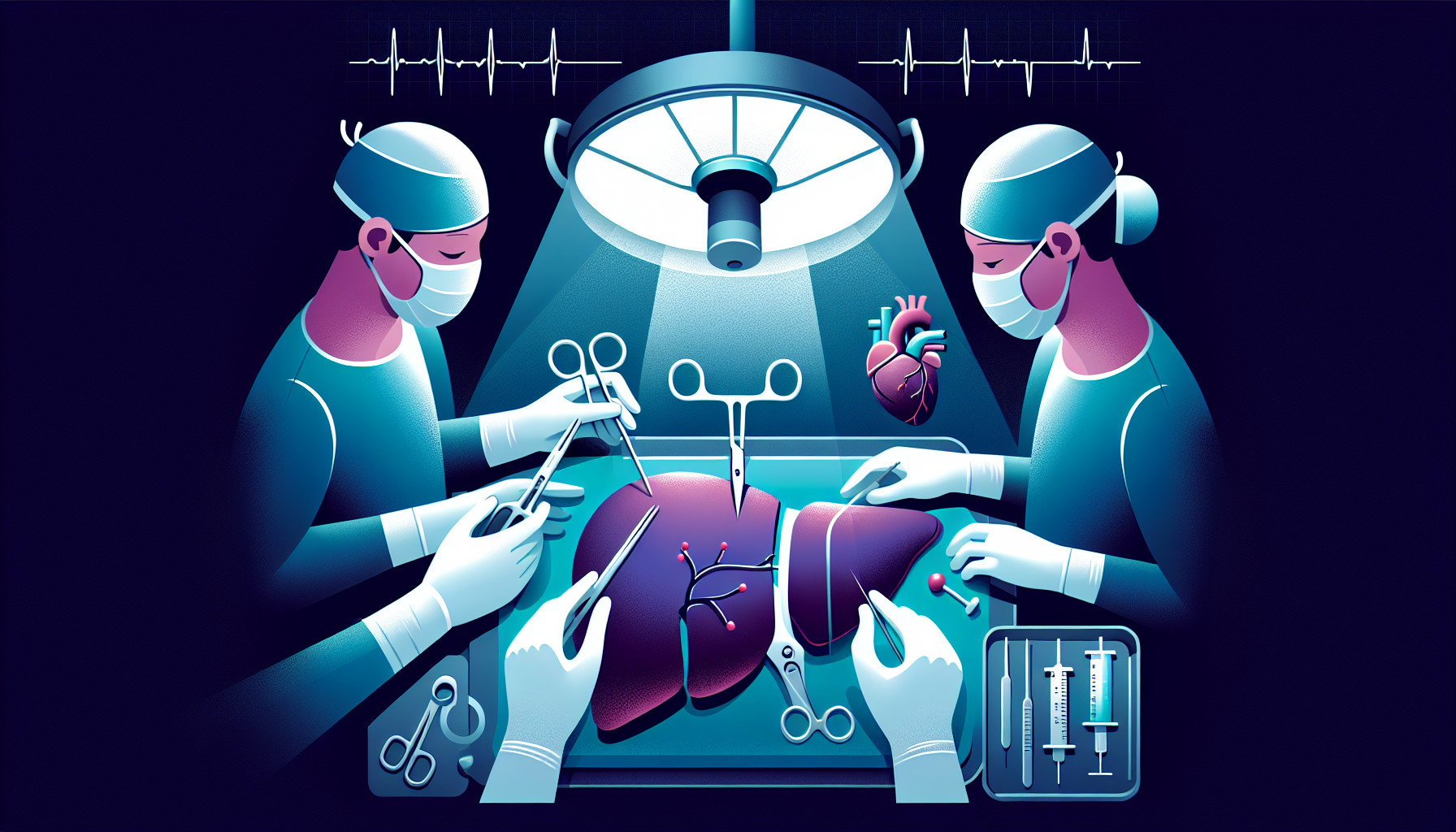Our Summary
Liver transplant survival rates have increased thanks to advances in surgery, care during and after operations, and better drugs to suppress the immune system. However, new or recurring viral infections after the transplant can still cause serious problems, including failure of the new liver and even death in patients who are not treated.
Fortunately, powerful antiviral drugs can help. For patients with chronic hepatitis B, these drugs can help control the virus for a lifetime. For those with chronic hepatitis C, starting antiviral drugs before the transplant can prevent recurrence, and if the infection does come back, these drugs can almost always eliminate the virus, no matter its type. Chronic Hepatitis E is a newer problem, it can cause the new liver to stop working, but if detected early, it can be treated.
Other viruses like CMV and EBV can also return and cause serious illness after a liver transplant. With the current COVID-19 pandemic, transplant patients are also at risk of this virus. Most liver transplant recipients who get COVID-19 need to be hospitalized, and about 20% die.
To manage these viral infections after a liver transplant, it’s crucial to quickly recognize problems with the new liver and identify the virus responsible. Adjusting the drugs to suppress the immune system can help reduce the damage to the new liver. Starting on powerful antiviral drugs early can help control or even eliminate the virus.
FAQs
- What are some of the complications that can occur after a liver transplant?
- How can antiviral drugs help liver transplant patients with chronic hepatitis B and C?
- How is the risk of COVID-19 managed in liver transplant recipients?
Doctor’s Tip
It’s important to communicate any symptoms or concerns you may have with your healthcare team after a liver transplant. Regular check-ups and blood tests will help monitor for any signs of viral infections or complications. Following a healthy lifestyle, including maintaining a balanced diet, exercising regularly, and avoiding alcohol and smoking, can also help support the health of your new liver. Remember to always follow your doctor’s recommendations and take all prescribed medications as directed to ensure the best outcome after your liver transplant.
Suitable For
Patients who are typically recommended for a liver transplant include those with end-stage liver disease caused by conditions such as:
- Chronic viral hepatitis (Hepatitis B, Hepatitis C)
- Alcoholic liver disease
- Non-alcoholic fatty liver disease
- Autoimmune hepatitis
- Primary biliary cirrhosis
- Primary sclerosing cholangitis
- Wilson’s disease
- Hemochromatosis
- Alpha-1 antitrypsin deficiency
- Biliary atresia (in children)
In addition, patients with acute liver failure or liver cancer (hepatocellular carcinoma) may also be candidates for a liver transplant. However, each patient’s case is unique, and a thorough evaluation by a transplant team is necessary to determine if a liver transplant is the best treatment option.
Timeline
Before the liver transplant:
- Patient is diagnosed with end-stage liver disease or liver failure.
- Patient undergoes extensive medical evaluations to determine if they are a suitable candidate for a liver transplant.
- Patient is placed on a waiting list for a donor liver.
- Patient may experience worsening symptoms of liver disease and complications as they wait for a donor liver.
After the liver transplant:
- Patient undergoes the liver transplant surgery, which can take several hours.
- Patient is closely monitored in the intensive care unit immediately after the surgery.
- Patient may experience complications such as rejection of the new liver, infection, or organ failure in the days and weeks following the transplant.
- Patient is discharged from the hospital once they have recovered sufficiently from the surgery.
- Patient requires lifelong immunosuppressive medication to prevent rejection of the new liver.
- Patient undergoes regular follow-up appointments and medical tests to monitor the health of the new liver and detect any complications early.
- Patient may need to make lifestyle changes, such as following a specific diet and avoiding certain medications, to support the new liver.
- Patient may experience improved quality of life and better overall health after the successful liver transplant.
What to Ask Your Doctor
Some questions a patient should ask their doctor about liver transplant and viral infections include:
- What are the risks of viral infections after a liver transplant?
- How common are viral infections in liver transplant recipients?
- What viruses should I be concerned about after my transplant?
- How will you monitor for viral infections after my transplant?
- What symptoms should I watch for that may indicate a viral infection?
- How quickly can viral infections be treated if they occur?
- Will I need to take antiviral medications after my transplant? If so, for how long?
- Are there any specific precautions I should take to prevent viral infections after my transplant?
- How will my immune system be monitored and managed to prevent viral infections?
- How has the COVID-19 pandemic affected liver transplant recipients, and what precautions should I take?
Reference
Authors: Jothimani D, Venugopal R, Vij M, Rela M. Journal: Best Pract Res Clin Gastroenterol. 2020 Jun-Aug;46-47:101689. doi: 10.1016/j.bpg.2020.101689. Epub 2020 Sep 26. PMID: 33158469
